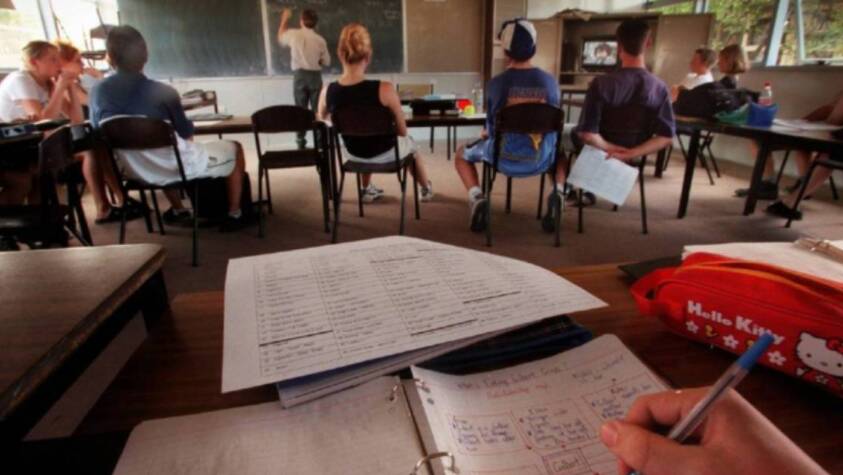
Teacher shortages in parts of Tasmania are making virtual learning impossible for children isolating at home due to COVID-19, the state's education union says.
Subscribe now for unlimited access.
or signup to continue reading
Children who are in the same household as an active case of COVID-19 are required to isolate for seven days from the date of the case diagnosis.
This means that they are forced to do their education remotely, as is the case with children with COVID-19.
Australian Education Union state president David Genford on Monday said these students needed the full learning support they deserved.
"There are virtual learning options for students who are required to isolate, but with a severe teacher shortage in many parts of Tasmania, schools are unable to directly support students learning at home while also running a class," he said.
Mr Genford said as winter approached, the government needed to undertake a thorough ventilation audit of schools to ensure classrooms were safe.
Education Minister Roger Jaensch said the department had staffing strategies in place to ensure staff were supported and that face-to-face learning was able to continue.
"Schools can work with their Learning Services if they require additional support due to staffing concerns," he said.
Mr Jaensch said a ventilation assessment was carried out earlier this year and additional air purifiers and tower vans would be rolled out in schools across April to June.
READ MORE: Precious find in Tasmanian plantation area
"To further assist each school's ventilation and air quality needs, CO2 monitors have been provided," he said.
Twenty-two per cent of Tasmanian children aged between 5 and 11 years old have received both doses of the COVID vaccine which equates to more than 10,000 children.
More than 82 per cent of young people aged between 12 and 15 years are also fully vaccinated.
When asked whether a particular rate of vaccination coverage needed to be met in order for COVID management rules in schools to be relaxed, Public Health deputy director Julie Graham said a decisions relied on Australian Health Protection Principal Committee advice.
"All decisions in relation to the ongoing COVID-19 pandemic are made in accordance with AHPPC advice through careful assessment and evaluation of the most up-to-date and relevant data available to decision makers at any given time," she said.
"AHPPC continue to review isolation and quarantine requirements as they apply to cases and close contacts and Public Health will make recommendations aligned with AHPPC advice when necessary and appropriate to the Tasmanian context."














